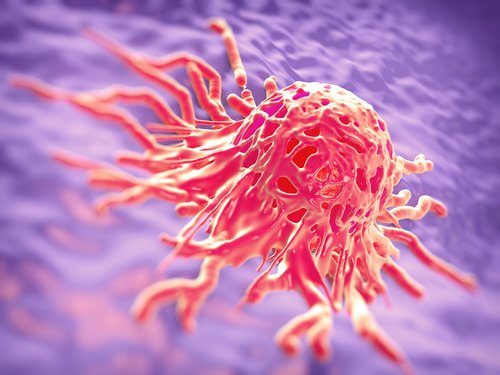This post was originally published on this site A maternal diet supplemented with choline, an essential nutrient, reduced the number of amyloid plaque deposits and improved memory across two generations of a mouse model of Alzheimer’s disease, a study reports. These findings support the long-lasting effects of dietary choline and suggest that a maternal choline-rich diet…
Category: Blog
Synthetic Genomics, Advaxis Launch Venture to Produce Synthetic DNA for Immunotherapy Clinical Trials
This post was originally published on this site Synthetic Genomics and Advaxis have developed a current good manufacturing practice (cGMP) synthetic biology suite to produce synthetic DNA constructs. The cGMP facility meets U.S. Food and Drug Administration (FDA) requirements to begin a Phase 1 clinical trial testing ADXS-NEO — a potential immunotherapy made by Advaxis to treat a…
S-1 and Platinol Combo Shows Promise Against Cervical Cancer, Phase 3 Trial Indicates
This post was originally published on this site Adding S-1 to Platinol (cisplatin) chemotherapy improved cervical cancer patients’ response to treatment and lengthened the time it took for their disease to progress, according to a Phase 3 clinical trial. Taiho Pharmaceutical, which developed S-1, presented the results at the American Society of Clinical Oncology annual meeting in…
Opdivo Showing Early Promise in Advanced Cervical Cancer Patients Enrolled in Phase 1/2 Trial
This post was originally published on this site Preliminary data from a Phase 1/2 trial, presented at the American Society of Clinical Oncology Annual 2017 Annual Meeting, shows that Opdivo (nivolumab) monotherapy was effective in more than 26 percent of patients with cervical cancer, regardless of their PD-L1 or HPV status, or number of prior…
Genentech Halts Phase 3 Trials Testing Crenezumab for Early Alzheimer’s Disease
This post was originally published on this site Two Phase 3 trials — CREAD 1 and CREAD 2 — evaluating crenezumab as a therapy for early Alzheimer’s disease have been discontinued, Genentech announced. The decision was based on an interim analysis by an independent data monitoring committee that ruled that crenezumab was unlikely to meet its…
Epigenetic Therapy Restored Memory, Cognitive Function in Mouse Model of Familial AD
This post was originally published on this site Using a new type of approach called epigenetics, researchers were able to temporarily rescue memory and cognitive function in a mouse model of Alzheimer’s disease. The study showed that epigenetic changes — external modifications to DNA to turn genes on or off without changing the actual DNA…
Anti-epileptic Therapies Linked to Longer Hospital Stays in Alzheimer’s Patients, Study Reports
This post was originally published on this site Alzheimer’s disease patients who take anti-epileptic therapies have a higher number of accumulated days spent in the hospital than those not prescribed this type of medication, a study reports. The study, “Antiepileptic Drugs and Accumulation of Hospital Days Among Persons With Alzheimer’s Disease,” was published in The…
UB-311 Vaccine Safe, Effective in Mild Alzheimer’s Patients, Phase 2a Trial Suggests
This post was originally published on this site United Neuroscience’s Alzheimer’s vaccine candidate UB-311 was found safe and well-tolerated, triggering an antibody response against beta-amyloid in most of the patients, according to Phase 2a trial results. “These early results suggest a clinical response and support the continued and rapid development of UB-311. The intent of this Phase 2a study was…
Stroke Medicine May Prevent Beta-Amyloid Accumulation in Early Alzheimer’s, Mouse Study Shows
This post was originally published on this site A medicine being developed to treat stroke patients may help protect the brain from Alzheimer’s disease by suppressing the accumulation of toxic amyloid-beta during the early stages of the disease and preventing memory loss, a mouse study shows. The study “3K3A-activated protein C blocks amyloidogenic BACE1 pathway…
What is Lip Shortening and its Benefits?
Lip shortening, or more commonly known as an upper lip lift, is primarily sought out by patients who are unhappy with the space between their upper lip and nose. Another reason someone might seek an upper lip lift is to help correct turned down corners of the mouth or a permanent frown, however, this procedure...










